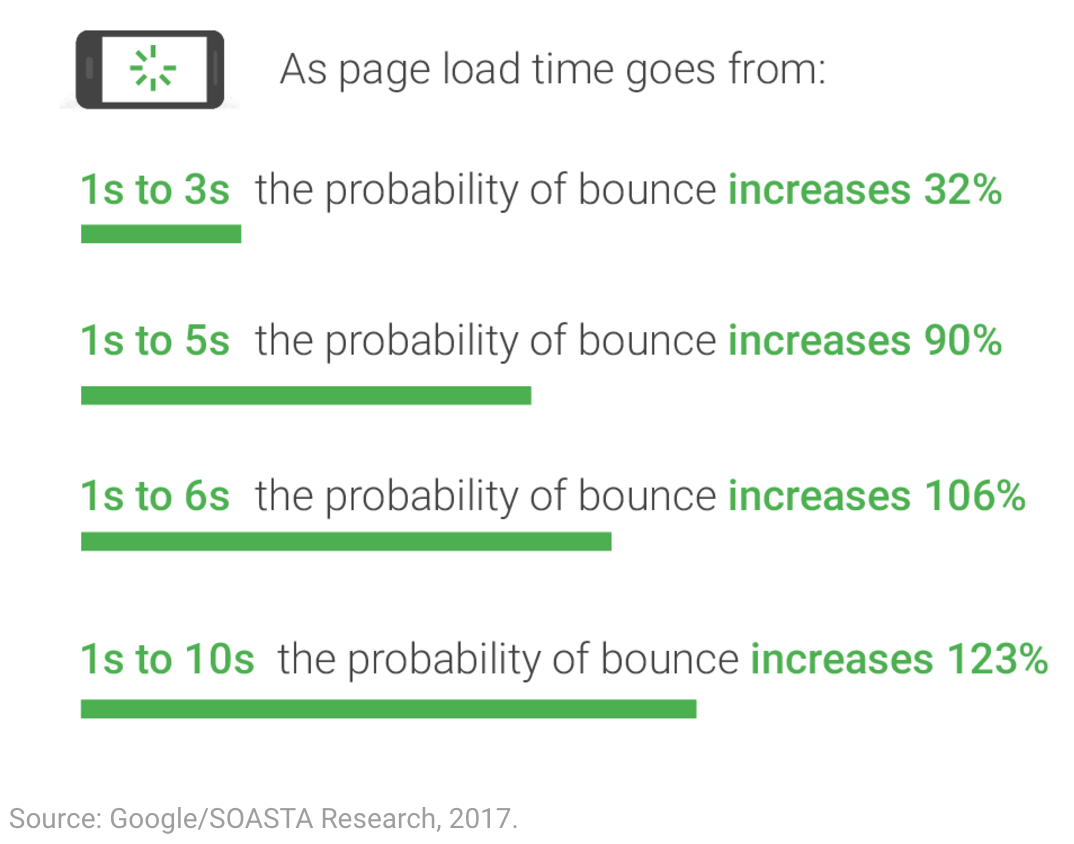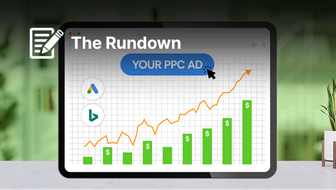According to Google’s latest research, the time it takes to load the average mobile landing page is 22 seconds. However, research also indicates 53% of people will leave a mobile page if it takes longer than 3 seconds to load.
Needless to say, the average mobile page is not meeting users’ expectations. This is true websites in all industries. People want to read an article as soon as it’s clicked on. Shoppers will abandon their cart on an e-commerce site if the website is too slow. Customers expect to be able to quickly pay bills on banking sites. Vacationers want immediate results when looking for reviews — and so on.
The reality is, as Google found out, 70% of pages take 7 seconds for the visual content above the fold to load. All visual content above and below the fold took 10 seconds to fully load. This is troubling because as page load time goes from 1 second to 7 seconds, the likelihood of a visitor abandoning the page increases 113%

Speed doesn’t just affect page views, it affects revenue. Google’s latest data shows conversions are lower on mobile than they are on desktop, despite the fact that over half of all web traffic comes from mobile devices.
After analyzing 900,000 mobile ads’ landing pages spanning 126 countries, Google came to the conclusion that “the majority of mobile sites are slow and bloated with too many elements.”
Google illustrates just how bloated mobile web pages are with further data — 70% of pages analyzed were over 1MB, 36% were over 2MB, and 12% were over 4MB. To put that in perspective, 1.49MB takes 7 seconds to load using a fast 3G connection.
This has a direct correlation with a drop in conversions. As the number of elements on a page goes from 400 to 6,000, the likelihood of users converting drops by 95%.
”No matter what, faster is better and less is more.”
What Should Site Owners Do?
Google says 30% of the pages it analyzed could save over 250KB simply by compressing images and text. Google recommends running your site through the Test My Site tool, which analyzes both mobile-friendliness and mobile page speed, then compare it against the latest benchmarks.
For more details about the latest industry benchmarks for mobile page speed, including how they differ amongst different market sectors, you can view the full report here.





